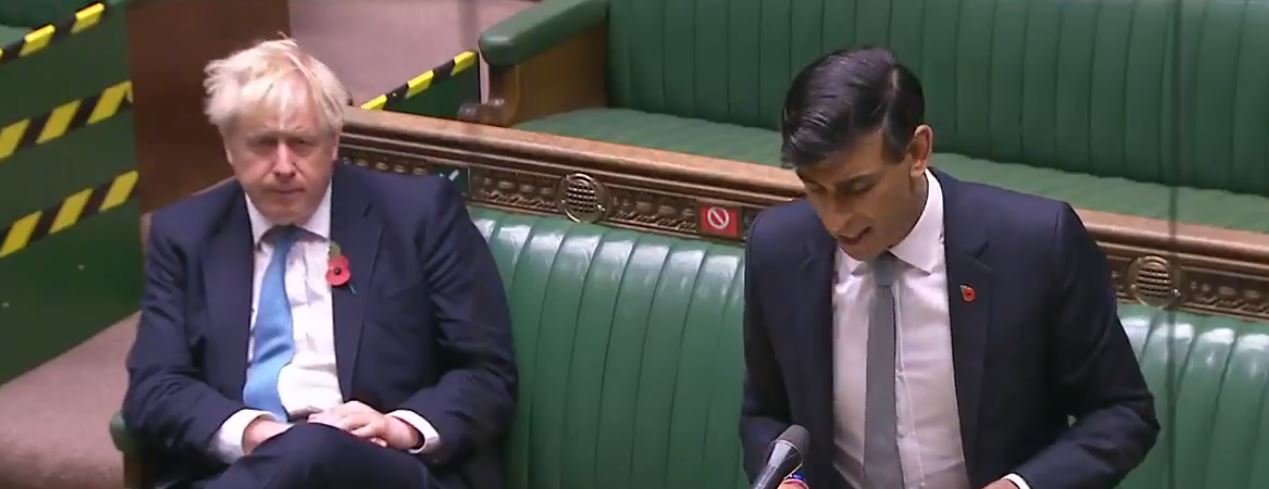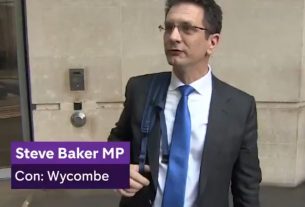Chancellor Rishi Sunak unveiled his fourth winter economic plan in six weeks by announcing the extension of the furlough scheme until March.
It means the government will pay 80% of workers’ wages with companies paying national insurance and pension contributions. Support for self-employed had also been extended and the amount increased from previous Treasury statements.
The furlough scheme has so far cost more than £41 billion and the extension is estimated to cost a further £6 billion per month.
“Extending furlough and increasing our support for the self-employed will protect millions of jobs and give people and businesses the certainty they need over what will be a difficult winter,” Sunak told the Commons today (Thursday).
It is a major climb-down by the chancellor who has repeatedly dismissed extending furlough “endlessly”, saying he “cannot save every job”.
Too late for business and workers
Labour criticised the timing of Sunak’s statement as coming too late for many businesses who planned and acted on furlough ending on October 31, just five days ago.
“Businesses and workers have been pleading for certainty from this government, but the chancellor keeps ignoring them until the last possible moment, after jobs have been lost and businesses have gone bust,” said shadow chancellor Anneliese Dodds.
She added: “ [This is] the chancellor’s fourth version of his winter economy plan in just six weeks. The Chancellor can change his mind at the last minute, but businesses can’t.
“We need a chancellor who is in front of the problems we face, not one who is always a step behind.”
10% of workforce ‘excluded’ from support
Three million taxpayers equating to “10% of the UK workforce” remain excluded from the support package with freelancers, newly self-employed (those lacking three years of tax returns) and new-job starters (those employed after March 19) among a wide group of workers deemed ineligible for support.
The grassroots group ExcludedUK are campaigning to press the issue with local MPs and for supporters to sign their letter to the chancellor, which states: “We urgently call on the Government to address the disparities in support, to ensure that all individuals and businesses currently excluded, entirely or largely, from Covid-19 grants are given the support they need and rightfully deserve.”
General secretary of the Prospect union, Mike Clancy, said: “The exclusion of 3 million self-employed and freelance workers from any economic support is even more unjustifiable than it was back in March.
“People must not face a winter with no support due to arbitrary cut-offs that were conceived when we had no idea how long this crisis would last, the government urgently needs to review the rules and make sure that all workers are covered by these schemes.”
Some hope for recent redundancies
There is some hope for people recently made redundant and for those who left work voluntarily as they can be rehired and furloughed so long as they were on the payroll on September 23. However, businesses will still have to pay pension and national insurance contributions which will inevitably deter some from rehiring staff already let go.
Extending furlough also means the scrapping of the job retention bonus, which was set to be worth £1,000 per employee to companies who kept them on until January.
Another £150bn QE injection from Bank of England
The Bank of England (BoE) will inject a further £150 billion quantitative easing (QE) to bolster the UK economy as it warned more than three million employees will be forced into furlough.
It is £50 billion more than experts expected and will take the “total stock of assets purchased from £745 billion to £895 billion”, reports the Times, “equivalent to roughly half the existing stock of non-inflation-indexed government debt.”
The BoE said an “unusually uncertain” economic outlook determined the £150 billion of “additional asset purchases” with governor Andrew Bailey saying: “We believe there is value in acting quickly and strongly. We will take whatever action is necessary.”
Sunak’s extension of furlough will mitigate some job losses although the bank still forecasts unemployment will near one million in the first half of 2021, peaking at 7.75%. The impact of Brexit on economic growth and jobs will be costlier if the UK government fails to secure the Canada-style agreement it seeks from the EU, the bank warns.
It predicts the UK economy will be 9% smaller in March 2021 than at the end of 2019. The bounce back is now forecast to take several months longer with the losses not recovered until early next year. The rate of predicted ‘permanent lost output’ has also been raised from 1.5% to 1.75% following the second lockdown in England.
Responding to the data, the BoE left interest rates at the historically low 0.1% rate but the market expects that to go negative next year to -0.1%.




